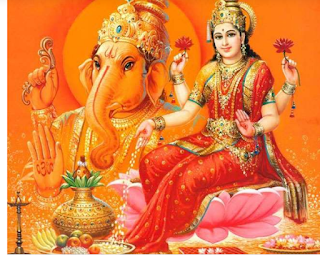Auspicious time for worship on Diwali:
The auspicious time for worship, also known as the "Muhurat," during Diwali varies depending on the specific customs and traditions followed in different regions. However, the most auspicious time for Diwali Puja falls during the evening hours after sunset.
Here is a general guideline for the auspicious time for Diwali worship:
Lakshmi Puja Muhurat:
Date: Diwali is celebrated on the Amavasya (new moon) day of the Kartika month.
Time: The most auspicious time for Lakshmi Puja usually begins after sunset and continues for a specific duration.
Pradosh Kaal: This is the evening time when darkness starts setting in. The Lakshmi Puja is typically performed during the Pradosh Kaal, which is considered highly auspicious. It usually starts around sunset and lasts for about 1 hour and 55 minutes.
Vrishabha Kaal: Another auspicious time for Diwali Puja is the Vrishabha Kaal, which is a little later than Pradosh Kaal. It starts approximately 1 hour and 25 minutes after sunset and lasts for about 1 hour and 24 minutes.
It is crucial to consult local Panchang (Hindu calendar) or consult with a knowledgeable priest to determine the exact Muhurat timings for Diwali Puja based on your specific location.
During the Puja, people worship Goddess Lakshmi, Lord Ganesha, and other deities according to their family traditions. Lighting diyas, reciting prayers, offering sweets, and performing aarti (ritual of worship with lamps) are essential parts of the Diwali Puja.
It's important to note that while these are general guidelines, the specific Muhurat timings can vary based on the lunar calendar, geographical location, and regional customs. Therefore, it is advisable to seek guidance from a knowledgeable source or a local priest for the accurate auspicious timings for Diwali worship in your area.
